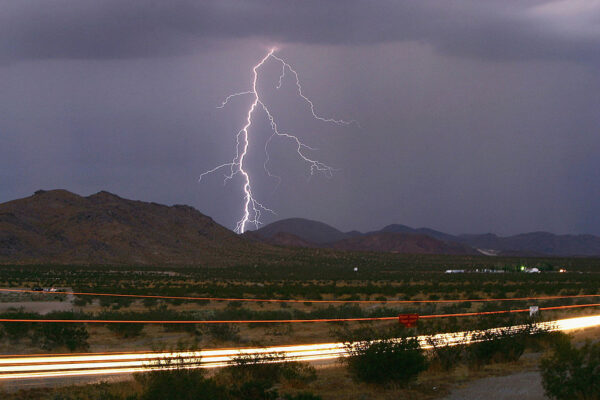Why Can Humans Smell Rain Better Than Sharks Can Smell Blood
Distressed Patriotic Flag Unisex T-Shirt - Celebrate Comfort and Country $11.29 USD Get it here>>

Humans can smell rain better than sharks can smell blood, and it’s all because of something bacteria, algae, and fungi produce.
Called geosmin, it is a chemical compound produced by certain types of bacteria, algae, and fungi, and if you are human, you can detect the scent of geosmin in very low concentrations—as low as 100 parts per trillion, according to a study in 1992.
This is compared to animals like sharks that can detect blood when it is only one part per million in the sea.
A chemical compound produced by certain types of bacteria, algae, and fungi that live in the ground or on other surfaces, geosmin is released when raindrops hit the ground or other surfaces, disturbing the soil or other environments where these microorganisms reside. This releases geosmin into the air, which contributes to the earthy and musty note that is synonymous with the smell of rain or petrichor.

What Makes the Smell of Rain Distinctive
Petrichor, or the pleasant earthy smell that often accompanies the first rain after a dry period and was first used in 1964 in a paper published by Nature and written by the Australian CSIRO scientists Dick Thomas and Isabel Bear.
The smell of petrichor is often described as earthy, fresh, and pleasant, which many people associate with the rejuvenating feeling of rain after a dry spell, and it can evoke a sense of nostalgia and tranquillity.
Scientists believe that the ability to detect and appreciate petrichor may have evolutionary roots, with some humans even being able to detect approaching rain and even bad weather well before its arrival.

It is thought that humans and other animals may have developed a sensitivity to this smell as a way to detect the presence of water in their environment, which is essential for survival.
In recent years, researchers have also studied petrichor for its potential benefits in improving mood and reducing stress, as the scent of petrichor has been found to have a calming effect on some individuals and is sometimes used in aromatherapy and fragrance products.
Rain Can Smell Different In Each Locality
Apart from petrichor, rain can also carry other scents depending on the conditions and surroundings, for example, in urban areas, rain can pick up pollutants and other odours present in the environment, resulting in a different smell. A forested area may carry the scent of vegetation, damp earth, or decaying leaves.
Sometimes rain can even be smelt before it reaches the ground, as raindrops falling through the atmosphere interact with various substances such as ozone, nitrogen compounds, and volatile organic compounds, resulting in distinct smells such as a metallic or fresh scent.
The main reason for these localised variations in the smell of rain comes from the plants exposed to the weather changes and the atmosphere itself.

Plants, especially those with aromatic leaves or flowers, can release oils during dry periods, which accumulate on the surface of leaves and other parts of the plants.
When it rains, the rainwater can disturb these oils, releasing their aromatic compounds into the air, which adds to the overall scent of rain.
Finally, there are the atmospheric and environmental conditions in a region experiencing rainfall, the presence of which can also affect the smell of rain.
For example, when rain falls after a dry spell, the first raindrops can stir up dust and other particles in the air and on the ground, all of which may carry their own scents that then mix with the petrichor aroma.
Similarly, during periods of humidity, the temperature and the air composites can influence the intensity and perception of the rain smell. One example of this is ozone, which is known to have a sweeter scent. It is made of three oxygen atoms, and its name comes from Greek and means ‘to smell’ (‘ozein’).
Ozone occurs naturally in the atmosphere, and it usually is formed in the atmosphere by separating nitrogen from oxygen molecules, which takes place usually after lighting.

Many of us might have noticed that the smell of ozone occurs before a heavy rain downfall, the reason for which is the downward flowing draft of air from the upper atmosphere bringing the ozone lower to the ground, and thus we can sense its specific scent.




